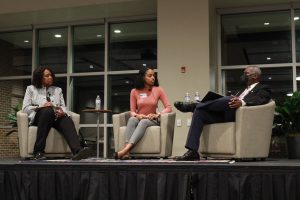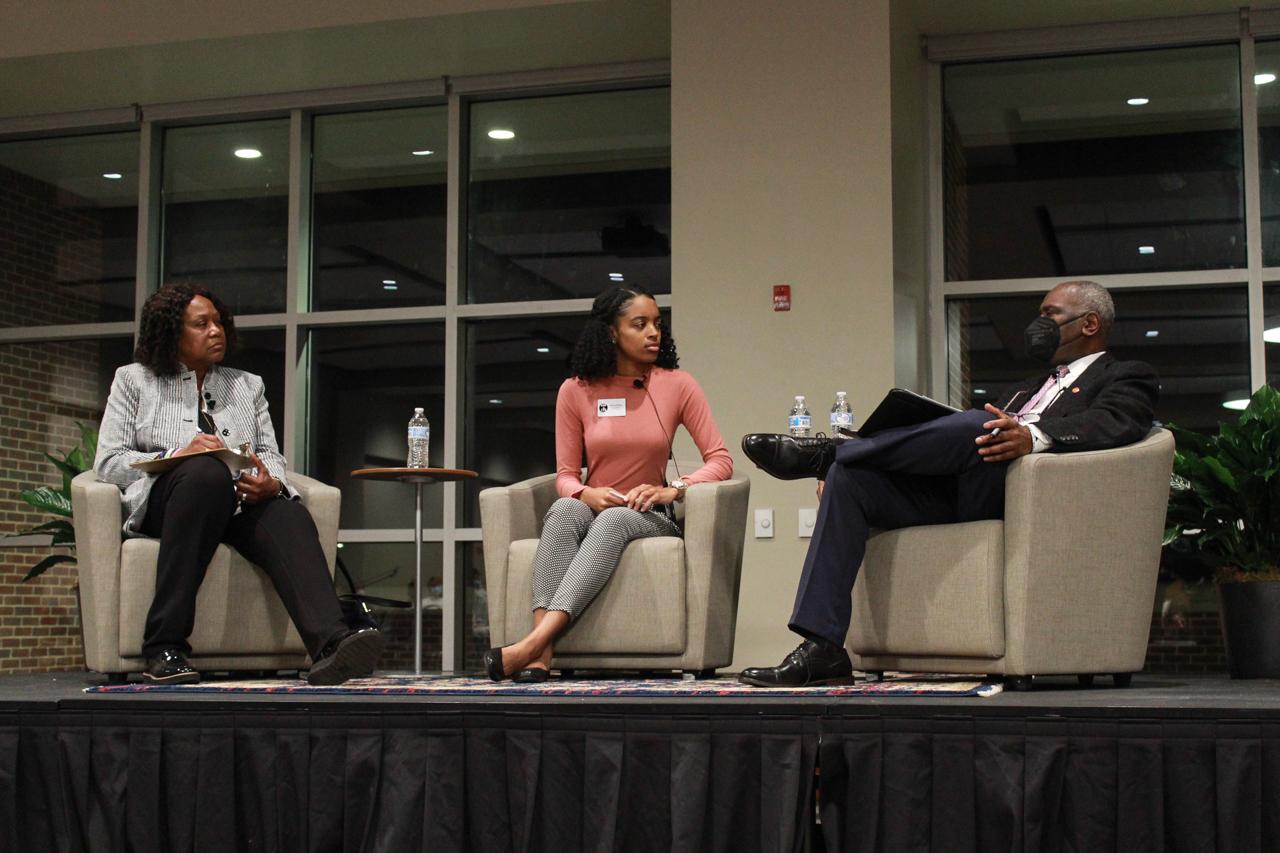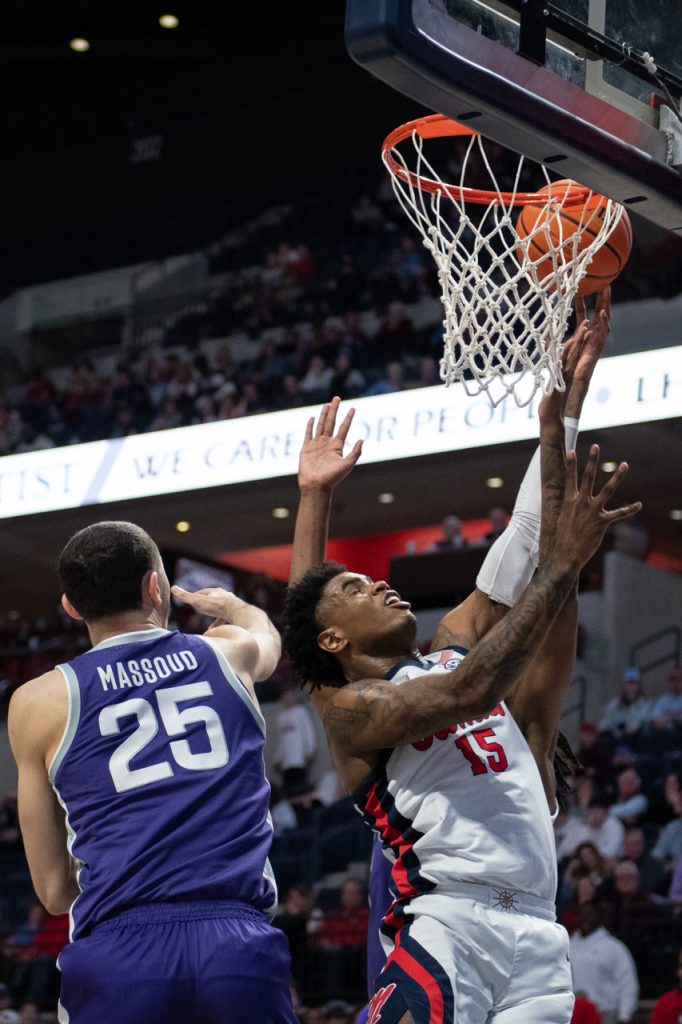In celebration of Black History Month, the University of Mississippi hosted the annual Black History Month keynote on Feb. 16, titled “I Am UM,” in the Gertrude C. Ford Student Union Ballroom.

Alumni Donald Cole and Peggie Gillom-Granderson spoke on the disadvantages they faced as Black students at the university, and how the university should recognize and celebrate Black students, staff and community at Ole Miss.
Cole was one of the Ole Miss Eight, a group of students who were arrested for peacefully protesting racial discrimination at the University of Mississippi in 1970.
Cole attended the University of Mississippi just six years after James Meredith was admitted at the university in 1962.
“The university didn’t love me at first, but I kept on loving it,” Cole said, “until it loved me.”
Cole was a professor of mathematics at the university, eventually receiving the position of assistant provost before he retired in 2018, leaving his legacy as a namesake on the Martindale-Cole Student Services Center.
“I love this institution. The institution was part of my life — is part of my life — I can’t separate myself from the institution, nor can it really separate itself from me; we interweave together,” Cole said.
Holding the record of the all-time scoring and rebounding leader, Gillom-Granderson was a legendary player on the Ole Miss Women’s Basketball team from 1976-1980. She then returned to the University of Mississippi to be the assistant coach of the women’s basketball team in 2003.
“I love Ole Miss, I’ve defended Ole Miss for pretty much all of my life,” Gillom-Granderson said. “But there was Black and white, and it should never return to that.”
As the 60th anniversary of the integration of Ole Miss approaches, Ethel Scurlock, Associate Professor of English and African American Studies, encourages Ole Miss students to recognize the strain, struggle and sacrifice of the Black students who paved the way for the university to reach its position today.
“Black students came to this space and they thrive in spite of — not because of — the racial landscape of Ole Miss,” Scurlock said. “They paid in blood, they paid in sweat, they paid in tears, and some even paid with their sanity.”
















